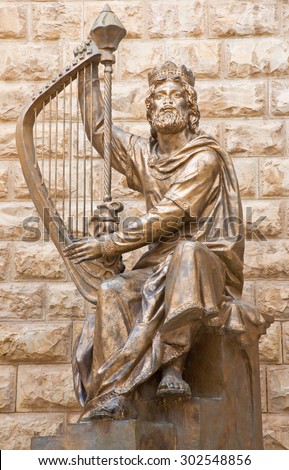 |
| King David, God's Hymn-Writer |
Psalm 22:27-28 reads, "All the ends of the earth shall remember and turn to the Lord, and all the families of the nations shall worship before You. For kingship belongs to the Lord, and He rules over the nations." Again, the Lord's dominion is taken as the basis for the expectation that a time will come when the nations (not necessarily all individuals) will worship Him through His mediatorial Son. The Apostle Paul borrows this theme in Ephesians 1:20-22.
And finally Psalm 110:1-3, "The Lord says to my Lord: 'Sit at my right hand, until I make your enemies your footstool.' The Lord sends forth from Zion Your mighty scepter. Rule in the midst of Your enemies! Your people will offer themselves freely on the day of Your power, in holy garments; from the womb of the morning, the dew of Your youth will be Yours." After His ascension, Jesus sat down at the right hand of the Father's throne in heaven, compare Acts 2:33, Hebrews 1:3, and Hebrews 10:13. There He receives the Father's promise to bring all things under His dominion. Notice especially that this is said while Jesus is in Heaven, and explicitly states that He is to wait there until it is achieved. There is no allowance here for the premillennialist error that holds that His dominion is established after His second advent. This is a description of His kingly work between His first and second advents, i.e., it is being achieved now!
It is an error, dishonoring to our Redeemer, to hold that He is impotent to change the world, until some future millennium. I hold that the millennium is now, and Jesus reigns now, and history is the story of His conquest of His enemies. Having once been His enemy, I rejoice in His conquest of my heart (Romans 5:19, Colossians 1:21).




1 comment:
Great post. Christ is our Prophet, Priest and King. He rules and reigns now. I am currently editing a couple of posts regarding the Psalms, so I was encouraged to see this.
Post a Comment